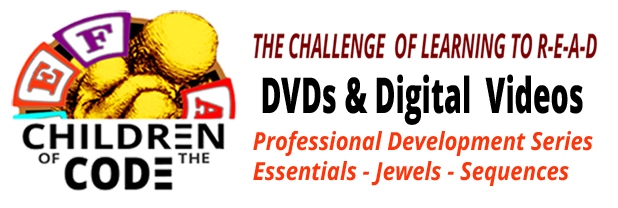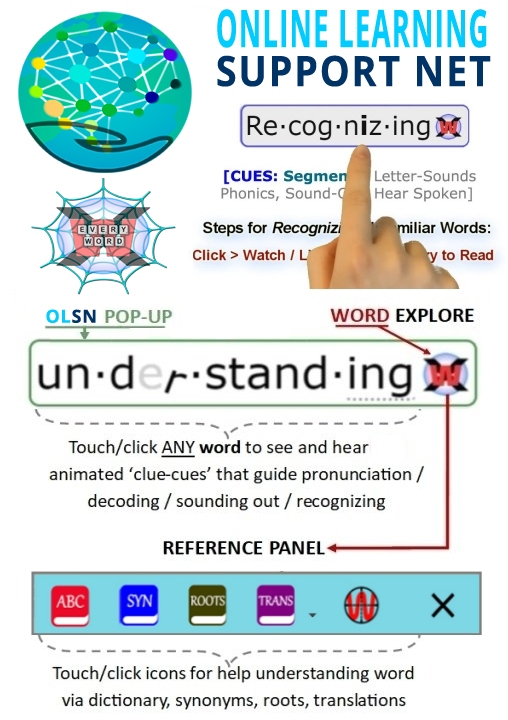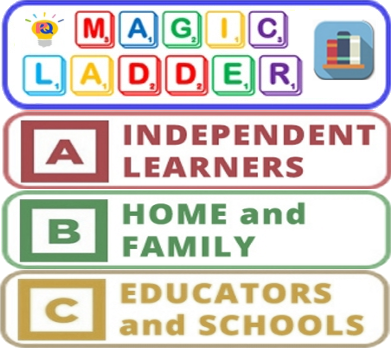The Effects of Reading on Thinking
Note: Remember to click on any word on this page to experience the next evolutionary step in technology supported reading.
Meta-Cognitive Implications
It has enormous meta-cognitive implications. The power is this: That you cannot only think in ways that you could not possibly think if you did not have the written word, but you can now think about the thinking that you do with the written word.
John Searle, Mills Professor of the Philosophy of Mind and Language at University of California-Berkeley. 2004 National Humanities Medal for shaping modern thought about the nature of the human mind. Author of Mind: A Brief Introduction to the Fundamentals of Philosophy. Source: COTC Interview – http://www.childrenofthecode.org/interviews/searle.htm#Meta-CognitiveImplications
Why Reading is so Important
In some sense some of the more interesting aspects of the functions of reading go beyond the obvious and have to do with the ability of children to think differently in a way that derives uniquely from written text.
Writing has a unique function of incorporating within the written text everything that one needs to know in order to understand the text and it generates a different way of thinking. Preliterate societies, even adults in those societies, don’t think in the way that people do in societies that are literate. And so the process of education, being an educated person in the Western tradition, I think, depends very much on being able to read and read fluently.
Grover (Russ) Whitehurst, Ex-Director (2002-08), Institute of Education Sciences, U.S. Department of Education. Source: COTC Interview: http://www.childrenofthecode.org/interviews/whitehurst.htm#ReadingImportant
Ripple Effects of Reading Difficulty
I do see some very interesting ripple effects when kids are not acquiring reading skills. For example, it might be that a particular child in fourth grade is having difficulty keeping pace with reading comprehension or with decoding, and because he’s having trouble with reading, he hates to read. And when he does read, he gets almost nothing out of it because he’s reading very passively. And because he’s reading very passively, he’s not able to use reading as a way of building his language abilities.
So, what oddly happens is that his language problems caused his reading problems, and his reading problems are now causing much more aggravated language problems. Those language problems, in turn, are going to make it hard for him to follow directions, communicate well with other people, and even use language inside his mind for something called ‘verbal mediation.’ Verbal mediation is the process through with which you regulate your behavior and feelings by talking to yourself. And believe it or not, a lot of kids with language problems really don’t use language as a way of regulating themselves.
They get in trouble, they get depressed, because they don’t have a voice inside that says, ‘Yeah, I could take that medicine. I could take that drug from that kid, and hey I’m a cool dude. But oh, if I take it, I could like wreck my brain, and I could get addicted and my mother will kill me if she finds out, and I could get arrested.’ And all of that comes out of language, that sort of verbal conscience that’s guiding you.
So, if you go all the way back to the language problem and say, yeah, it’s causing a reading problem, and the reading problem is causing the language problem, and the language problem is causing a behavior problem, and the fact that this kid can’t read, and other people around him can read much better is eroding his self-esteem, making him feel pretty worthless.
Mel Levine, Professor of Pediatrics; Co-founder, All Kinds of Minds Institute; Director, University of North Carolina Clinical Center for the Study of Development and Learning; Author, A Mind at a Time, The Myth of Laziness and Ready or Not, Here Life Comes. Source: COTC Interview: http://www.childrenofthecode.org/interviews/levine.htm#NegativeCollateralEffects
Reading and Cognitive Health and Development
In some sense, reading and thought become the same thing. To think deeply about something in a way that is culturally valued often means to be able to articulate one’s thoughts in a structured, logical way. The experience of reading well, as well as reading widely, allows a person to do that.
Grover (Russ) Whitehurst, Ex-Director (2002-08), Institute of Education Sciences, U.S. Department of Education. Source: COTC Interview: http://www.childrenofthecode.org/interviews/whitehurst.htm
Psychological Development
The ability to be self-aware and self-reflective is a double-edged sword. The ability to think about what you’re doing and think about what other people are doing and conceptualize what that means for you personally or for your family members is very much a product of literacy and the ability to read. The capacity to manage oneself, to deal with personal problems, to think in terms of long term consequences of one’s actions rather than in terms of short term consequences. Rather than doing this thing today that’s a lot of fun, I will do this other thing because a week from now I’ll be better off. The ability to delay gratification, work hard, depends on thinking abilities, cognitive abilities that are connected with literacy.
If you can think it through, if you can read a book and find out that somebody else has gone through these problems and think about how to apply these experiences at a distance from one’s own circumstance, you can handle things better. I think that is important to the psychological development of children and for the ability of our nation in terms of its citizenry to think about what it’s doing and makes decisions at a ballot box, for example, that are based on reasonable projections of long term self-interest rather than the emotional vicissitudes at the moment.
Grover (Russ) Whitehurst, Ex-Director (2002-08), Institute of Education Sciences, U.S. Department of Education. Source: COTC Interview: http://www.childrenofthecode.org/interviews/whitehurst.htm#PsychologicalDevelopment
The Effect of Reading on Thinking
David Boulton: Is it fair to say that the process of learning to read creates a cognitive processing infrastructure that wouldn’t be there if we didn’t, and that that cognitive processing infrastructure is a significant part of the way that we think these days?
Dr. Keith Stanovich: Oh, yeah. I couldn’t agree more. That’s a very good characterization. That is what we started to try to capture in a program of research that call The Print Exposure Program. After I published the Matthew Effects article — I mean, that was an essentially a model that synthesized a lot of literature, but we tried to study empirically some of the effects of differential exposure to print. That’s a program that I undertook with both Anne and Rich, subsequent to the Matthew paper which was published in 1986. For about a decade we were quite involved with studies looking at the effects of print exposure.
Keith Stanovich, Canada’s Research Chair of Applied Cognitive Science at the Department of Human Development and Applied Psychology, University of Toronto. Source: COTC Interview –http://www.childrenofthecode.org/interviews/stanovich.htm#EffectofReadingonThinking
How Reading Affects Us
Dr. David Abram: Yeah, absolutely. I guess in a sense, my focus has been that I’ve read so many wonderful studies on its influence upon how we think. And, I’m curious; I’ve been particularly interested in how does it affect how we perceive the world when we’re not reading? And, how does it affect our experience of language, and linguistic meaning once we have become literate, alphabetically literate?
So, I’m coming as a cultural ecologist and philosopher, and noticing these things that would be wonderful to unpack at more depth, because it’s very obvious to me, for instance, (and it’s amazing that this has not been brought out, or I haven’t seen it in other people working on the alphabet), that only when the alphabet comes into a culture, when a phonetic alphabet arrives, only then does that culture get this odd notion that language is an exclusively human property, or possession. And, the rest of the land falls mute. You don’t experience this in that way among Eastern cultures working with more ideographic, or somewhat iconic scripts. Certainly not among the Mayan, and obviously not among the Egyptians. But, our writing system very, very powerfully not only impacts our experience of our own subjectivity, it also profoundly impacts our experience of the sensuous surroundings. So much so, that I would have to say that the alphabet has played a very crucial role in the deepening environmental crisis—ecological crisis that now besets us on every hand.
David Abram, Philosopher, Cultural Ecologist. Source: COTC Interview: http://www.childrenofthecode.org/interviews/abram.htm#How_Reading_Affects_Us:
Verbal Intelligence and Metacognitive Functions
Dr. Keith Stanovich: Now let me segue back to that question you asked, because I think sometimes in education vocabulary is looked at in much too mundane a way. Indeed, vocabulary is a person’s tools of thought.
David Boulton: And the exercise environment for extending their verbal intelligence.
Dr. Keith Stanovich: Yes, wonderful. And extending verbal intelligence, but also a thing I want to stress is the metacognitive functions, because that’s what’s coming into play with these mental state terms.
These are ways of interrogating our own cognition. First of all, language gave us a big — like just any type of language gave us a leg up on that. This is what Clarkwrites very well about in his 1997 book called Being There. Dennett writes about this, too, quite nicely. So any type of language gives us the discrete categories, the kind of stabilizing vehicles, where we can — if we can stabilize thought with categories, then that’s going to encourage the kind of reflection on our own thought that’s the quintessence of metacognitive abilities.
David Boulton: And “I am,” the whole self-reflexive structure of ourselves.
Dr. Keith Stanovich: Absolutely. Then you add in this David Olson emphasis on now you have the tool of language, but what do you have in your tool kit?What do you have in that carpenter’s kit? Do you have just simple high-frequency clunky words like “think” and “know,” or do you have “contradict,” “concede,” “assume,” and all the mental state terms that he was studying in his work? Do you have a set of fine blades and screwdrivers?
David Boulton: How many bits is your color palette?
Dr. Keith Stanovich: Right. That’s a wonderful analogy. So to the extent that our print exposure work showed bootstrapping in these types of domains, I mean, you better believe that I think this is a bootstrapping of, literally, the tools of thought. I titled one of our print exposure papers, Does Reading Make You Smarter?
David Boulton: Many people get locked that it’s about the knowledge acquired through the reading, which obviously to some degree, it is; but the capacity for processing that gets developed in order to learn to read…
Dr. Keith Stanovich: Yes.
David Boulton: Seems to get lost.
Dr. Keith Stanovich: Seems to get lost, yes. I’m right with you.
Keith Stanovich, Canada’s Research Chair of Applied Cognitive Science at the Department of Human Development and Applied Psychology, University of Toronto. Source: COTC Interview – http://www.childrenofthecode.org/interviews/stanovich.htm#VerbalIntelligenceandMetacognitiveFunctions
Reading Exercises Intelligence
David Boulton: So, it’s an exercise environment. Learning to read well, once you’re doing it, opens the door to this huge opportunity to exercise your intelligence that you don’t have if you can’t read.
Dr. Anne Cunningham: Right. And you won’t acquire the level of verbal intelligence in a technological society such as ours without print. And that’s what is fascinating about this line of research is that people such as Hays and Aarons have looked at the oral versus print distributions of words and what you can readily see is there are lexical items that are found in print that are not words we use in oral discourse. Because we tend to, as a society, dummy-down our language and so you would look pretentious if we began to use words such as dissipate or endeavor. Those are words that are found primarily in print.
Anne Cunningham, Director of the Joint Doctoral Program in Special Education with the Graduate School of Education at the University of California-Berkeley. Source: COTC Interview: http://www.childrenofthecode.org/interviews/cunningham.htm#ReadingExercisesIntelligence
Abstraction, Generalization and Decontextualization
The ability to decontextualize — to stand aside from a media context and process abstractly. So again, the classic paradigm would be one of syllogistic reasoning with unbelievable conclusions. You create situations where logical validity is in conflict with the real world content of the conclusion. So you give people a syllogism that is valid, but a conclusion that is unbelievable in the real world. Or conversely, you give people a syllogism that is invalid, but has a conclusion that is very congruent with world knowledge. Then you look at people’s ability to deal with those types of problems in comparison to their ability to deal simply with problems that don’t involve the necessity of detaching real world knowledge.
Keith Stanovich, Canada’s Research Chair of Applied Cognitive Science at the Department of Human Development and Applied Psychology, University of Toronto. Source: COTC Interview –http://www.childrenofthecode.org/interviews/stanovich.htm#Abstraction,GeneralizationandDecontextualiztion
Plato's Point
Is writing an aid or a detriment to memory? Plato makes a point that actually sort of differentiates different kinds of memory. In the Phaedrus he’s talking about the fact that Thoth takes writing to Thamus, the king of Egypt, and he claimed:
‘That the letter would make the Egyptians wiser, and give them better memories. But Thamus wasn’t convinced and he argued that the invention would, in fact, create forgetfulness because they would trust the external written characters and not remember of themselves.‘
Johanna Drucker, Professor of Media Studies and Director of the Interdisciplinary Program in Media Studies at the University of Virginia. Author of The Alphabetic Labyrinth. Source: COTC Interview – http://www.childrenofthecode.org/interviews/drucker.htm#GreatQuote
Socrates' Point
This is the Socrates. This is Noel Humphries’ retelling of this.:
‘This science, letters, will render the wisdom of the Egyptians greater and will give them a more faithful memory. It’s a remedy against the difficulty of learning and of retaining knowledge. Those who learn them will leave to those strange characters the care of recalling to them all that they should rather have confided to memory. And they will themselves preserve no actual recollection of these things. Thus, thou hast discovered not a means of memory but only of reminiscence. Thou giveth to them the means of appearing wise without really being so for they will read without the instruction of masters and think themselves wise upon many things when, in fact, they will be ignorant, and their intercourse will be insupportable.’
Johanna Drucker, Professor of Media Studies and Director of the Interdisciplinary Program in Media Studies at the University of Virginia. Author of The Alphabetic Labyrinth. Source: COTC Interview – http://www.childrenofthecode.org/interviews/drucker.htm#GreatQuote













